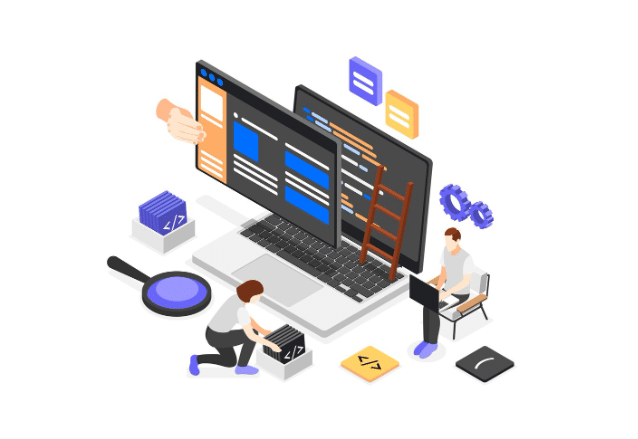When Was the Last Time You Actually Spoke to Your Tech Support Person?

It’s 2:00 PM on a Tuesday, and your most productive team member is staring at a frozen screen. A critical deadline is looming. They call your IT support provider, wait on hold for ten minutes, and are finally connected to a polite but clueless agent who asks for their name, their company name, and their account number—for the third time this month. They spend the next fifteen minutes re-explaining an issue that was supposedly fixed last week.
This scene is more than just frustrating; it’s a symptom of a broken, impersonal support model that treats your business like just another ticket number. It’s a model that undervalues your time, ignores your unique needs, and ultimately, puts your operations at risk. You’re not alone in feeling this way. In fact, from a McKinsey & Company study, a staggering 76% of consumers report feeling frustrated when they don’t get personalized experiences.
Key Takeaways
- Personalized IT support is no longer a luxury, but a baseline expectation. Businesses and their employees are deeply frustrated by generic, impersonal IT service that lacks context and forces them to constantly repeat issues.
- Impersonal tech support leads to significant business risks, including lost productivity, employee burnout, security vulnerabilities, and ultimately, a negative impact on your bottom line.
- True personalized IT means a proactive, relationship-driven approach where your support team understands your unique infrastructure, business goals, and history, preventing problems before they arise.
The Reality of Impersonal Support
The Repetition Cycle
The most immediate pain point is the endless loop of re-explanation. Every time you call, you start from scratch. You repeat your company details, the specific user’s issue, the history of the problem, and the steps you’ve already tried. This wastes valuable time and makes your employees feel like their problems are unimportant.
Lack of Context
Agents in a large, remote call center have zero context for your business. They don’t know that you rely on specialized industry software, that your server closet has a known cooling issue, or that your CEO is traveling and needs immediate remote access. Without this context, their troubleshooting is a shot in the dark, based on generic scripts rather than informed insight.
Inefficiency and Delays
Lack of context directly leads to longer resolution times. An agent who doesn’t understand your network configuration will spend hours on basic diagnostics that a familiar technician would already know. Every minute of this extended downtime is a minute your team isn’t working, your projects aren’t moving forward, and your business is losing money.
Generic Solutions, Not Real Resolutions
The result of this impersonal approach is often a “one-size-fits-all” solution that doesn’t truly address the root cause of the problem. They might suggest a system reboot or a software reinstall, failing to see the deeper conflict with another application unique to your workflow. This means the problem is likely to return, starting the frustrating cycle all over again.
Businesses are increasingly recognizing the value of personalized support that goes beyond generic fixes. Unlike one-size-fits-all solutions, IT support in Hartford examines system configurations, software interactions, and network setups to identify the root causes of recurring problems. By addressing these underlying technical issues, businesses can reduce downtime, streamline workflows, and ensure technology reliably supports day-to-day operations.
What “Knowing Your Name” Really Means in IT Support
When we say your IT support should know your name, we mean something far deeper than a friendly greeting. True personalization is the foundation of modern, effective IT management. It’s about creating a partnership where your IT team functions as an extension of your own company.
More Than a Greeting
Personalization isn’t superficial. It’s a deep, operational understanding of your business. It means your support provider has detailed documentation of your technology environment and can access it instantly. They know what makes your business tick and how technology supports your core objectives.
Contextual Awareness
The ideal IT partner knows your infrastructure before you even call. They know which servers you use, what cloud services you subscribe to, which software is critical for your operations, and the history of past IT issues. When you report a problem, they already have 90% of the context needed to start solving it, not asking for it.
Proactive Engagement
The ultimate form of personalized support is preventing problems from happening in the first place. A true IT partner doesn’t just wait for your call. They use continuous monitoring and proactive maintenance to identify potential issues—like a failing hard drive or an expiring security certificate—and resolve them before they can cause downtime. This proactive approach means you make fewer support calls, not just that your calls are resolved faster.
Relationship Building & Dedicated Contact
Instead of a random agent from a call center pool, you should have a consistent point of contact or a small, dedicated team assigned to your account. This team builds a long-term relationship with your business, learning your preferences, understanding your goals, and becoming a trusted advisor. This is the new baseline. As industry data shows, 70% of customers expect any agent they engage with to have full context of their situation and history.
The Bottom-Line Impact: How Impersonal Support Damages Your Business
The frustration of dealing with impersonal IT support is more than just an annoyance. It has a real, measurable, and negative impact on your bottom line. Sticking with a provider who treats you like a ticket number is a significant business risk.
Lost Productivity & Operational Drag
Every moment an employee is on hold with IT, re-explaining an issue, or struggling with a poorly resolved tech problem is a moment they are not doing their job. Multiply this across your team and over a year, and the cost of lost productivity becomes staggering. It creates an operational drag that slows down projects, delays deliverables, and directly impacts revenue.
Employee Frustration & Churn
Your best employees want to be effective. When chronic tech issues and unhelpful support prevent them from doing their jobs, it leads to burnout, dissatisfaction, and disengagement. In a competitive job market, poor internal support can be the tipping point that sends valuable talent looking for a new opportunity where they feel empowered, not hindered, by technology.
Escalated Security Risks
A distant, impersonal provider is far less likely to understand your specific security vulnerabilities. They apply generic security patches and protocols without understanding your unique data flows, user access needs, or industry compliance requirements. This one-size-fits-all approach leaves dangerous gaps in your defenses, making you an easier target for cyberattacks. A partner who knows your business can implement tailored, proactive protection to keep your data safe.
Damage to Your Reputation & Client Attrition
Think of your IT provider as you would any other vendor. If a supplier consistently delivered late or provided faulty materials, you would replace them immediately. Why should your IT support be any different? Their poor service directly impacts your ability to serve your own clients. The stakes are incredibly high, as research shows 73% of consumers will switch to a competitor after multiple bad experiences. If you wouldn’t tolerate this standard from your other partners, you can’t afford to tolerate it from the one that manages your company’s technology backbone.
Stop Being a Ticket Number. Demand a Partner.
The gap between impersonal and personalized IT support is the difference between operational risk and strategic advantage. The old way of reactive, anonymous service is no longer sustainable for any business that depends on technology to compete and grow. It costs you productivity, exposes you to risk, and drains employee morale.
It’s time to stop accepting the status quo. Evaluate your current IT support against the new standard. Do they know your business? Are they proactive? Do you feel like a valued partner or just another account number?

Top 10 IT Certifications That Actually Boost Your Salary in 2026

Amazon Ads vs. Google Ads: Which Platform Drives Better eCommerce Sales?

Where to Buy a Passport Online for Uninterrupted Global Travel


